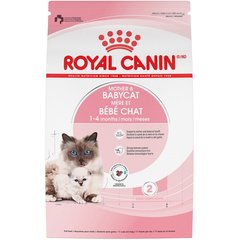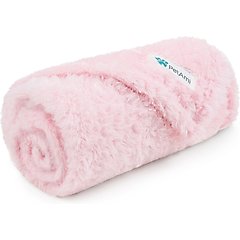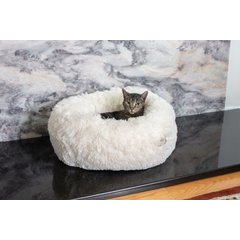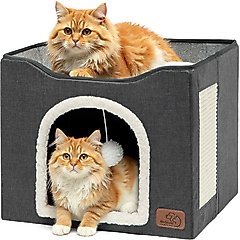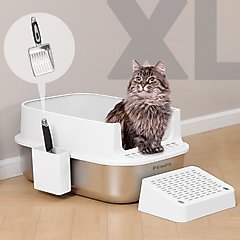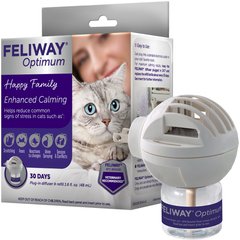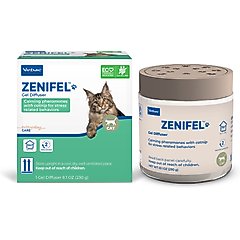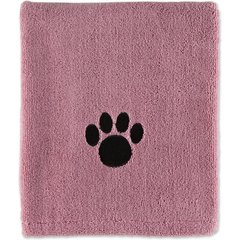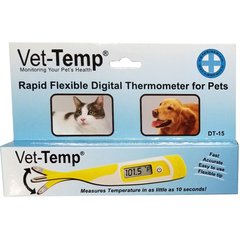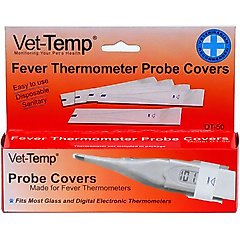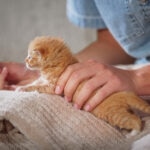How Many Kittens Can a Cat Have?
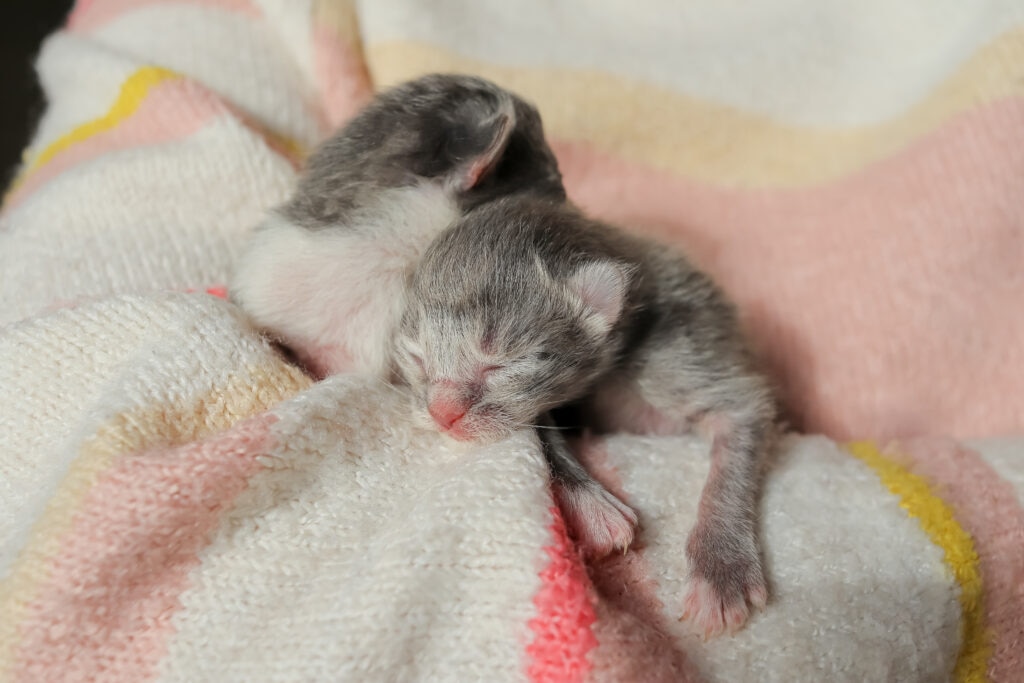
Photo by Kristina Pokaluk / iStock / Getty Images Plus
If you’ve just rescued a cat who’s about to give birth, you might be wondering: How many kittens are in a litter? While it’s common for cats to have multiple kittens at once, litter size can vary based on a few things.
Here’s what you need to know about typical litter sizes and how to keep your mama cat comfortable and healthy throughout her pregnancy.
How Long Are Cats Pregnant?
Cats can become pregnant as early as 5 or 6 months of age, says Bethany Hsia, DVM, mobile veterinarian and co-founder of CodaPet in Clovis, California. “This can vary slightly depending on the breed and individual development of the cat,” she says.
“Each pregnancy lasts about 64 days, although it can range from 58 to 70 days in some cases,” she explains, noting that cats can become pregnant multiple times a year, typically two to three times.
“Signs of pregnancy can be very subtle and usually not noted until late into the pregnancy,” says Mandi Shearhart, DVM, staff veterinarian at Best Friends Animal Society in Fayetteville, Arkansas.
Signs of a feline pregnancy may include:
- Weight gain, particularly around the belly
- Increased appetite
- Swollen or pink nipples
- More affectionate or clingy behavior
- Seeking out quiet, cozy places
- Milk leaking from nipples
If you suspect your cat is pregnant, take her to the vet for a checkup.
How Many Kittens Are in a Litter?
So how many kittens should you expect?
On average, a pregnant cat (fittingly known as a queen) will have four to six kittens in a single litter, Dr. Shearhart says. However, the number can vary quite a bit. Some queens give birth to just one kitten, while others may have up to 12. The largest recorded litter was an incredible 19 kittens.
“Smaller litters can be expected with a first pregnancy, but that’s not always the case,” Dr. Shearhart adds.
A veterinarian can usually confirm pregnancy around three weeks using an abdominal ultrasound, which may also provide a rough estimate of litter size, though an exact count at this stage can be challenging, Dr. Shearhart explains.
About two weeks before the due date, an abdominal X-ray can offer a more accurate count of the kittens.
What Influences How Many Kittens a Cat Has?
According to our vet experts, several factors come into play.
- Genetics: If a queen comes from a line of cats that consistently have large or small litters, she’s more likely to follow suit.
- Age: Young cats (especially under a year old) tend to have smaller litters of two or three kittens. Litter size typically increases with age, although older cats may see smaller litters again as fertility declines.
- First-time pregnancy: First-time feline moms often have fewer kittens.
- Health and nutrition: A healthy, well-nourished cat is more likely to have a larger litter. Cats with underlying health issues, such as feline leukemia (FeLV) or poor nutrition, may carry fewer kittens.
- Breed: Some breeds are known for larger litters, including Siamese, Orientals, Burmese, Abyssinians, and Persians.
- Body size: Larger cats often have more room to carry kittens, which can mean more little ones.
Do Pregnant Cats Need Special Care?
Pregnant cats benefit from a little extra TLC. The following are non-negotiables if your cat is expecting.
Head to the Vet
“Regular veterinary checkups throughout the pregnancy are essential to monitor her health and address any potential complications early on,” Dr. Hsia says.
Visit the vet to confirm the pregnancy, then schedule at least one follow-up visit as her due date nears. Your vet may recommend vaccinations as well as deworming to rid your cat of any harmful intestinal parasites.
Stick to a Specialized Diet
“A high-quality commercial cat food formulated for pregnant or nursing cats is recommended,” Dr. Hsia says, noting that it will contain important nutrients and increased caloric content that your cat needs.
Pregnant cats can also do well on a high-quality kitten food, even if the diet is not specifically labeled for pregnant or nursing cats. A good option for pregnant cats is Royal Canin Mother & Baby Cat, which is specifically formulated for the pregnancy and lactation life stages.
Recommended Product
Offer Your Cat a Stress-Free Environment
Pregnant cats need plenty of rest, so create a quiet, comfortable space where the mother cat can relax. Pick a low-traffic area in your home and set it up with soft blankets, a cozy cat bed like the Armarkat Cuddler Bed, or a covered hideaway like the Bedsure Cat Cave. Be sure she has easy access to food, water, and a litter box.
Recommended Products
To help reduce stress, keep loud noises, changes in routine, and contact with unfamiliar pets or people to a minimum. You may also consider calming products such as Feliway or Zenifel pheromone diffusers.
Recommended Products
Light play is fine, but your cat will need more rest as her pregnancy progresses. Keep your cat indoors throughout her pregnancy.
Prep a Cozy Birthing Spot
You’ll need to buy supplies to make sure your cat has a safe, comfortable place to have her kittens. And you’ll want to have the following supplies on hand well before her due date.
Reusable Bed Pads
Line the birthing area with washable pads to keep things clean and comfortable.
Recommended Product
Clean Towels
Use towels to gently clean the kittens or to cover soiled areas of the pads.
Recommended Products
Gauze Pads
Some kittens may be born in the breech position, so have gauze pads on hand to help you gently grip and assist if needed.
Thermometer
A slight drop in your cat’s body temperature is normal as labor approaches, so use a thermometer to monitor her temperature in the hours leading up to birth.
Recommended Products
Call your vet if labor doesn’t begin within 24 hours of any significant temperature drop — this could mean that your cat is having difficulties with the birthing process or with the kittens, such as kittens stuck in the birth canal, muscle weakness preventing proper contractions, infection of the uterus, or gestational diabetes, among other things.
Your Vet’s Contact Info
If you notice complications before, during, or after delivery, contact your veterinarian or an emergency pet clinic immediately.
FAQs About Kitten Litters
Q: Can you touch newborn kittens after birth?
A: Yes, you can touch and hold newborn kittens, but only if the mother cat is comfortable with it. If she shows signs of stress, reduce your handling. Be mindful not to hold the kittens too long, as they need time to nurse, sleep, and bond with their mother and littermates. Always wash your hands before handling them.
Q: What cat gave birth to the most kittens?
A: The largest known kitten litter was born to a Burmese-Siamese mix in the UK in 1970. She gave birth to 19 kittens.
Q: Can you tell if a cat has given birth before?
A: In some cases, yes. A cat who’s given birth may have slightly enlarged or darkened nipples, and her abdomen might feel looser or stretched. However, without medical records or a vet exam, it’s hard to say for sure.
Q: Do cats know how many kittens they have?
A: Cats seem to have a natural awareness of their litter and can usually tell if one is missing. While we don’t know exactly what they’re thinking, many queens will search for missing kittens or become distressed if one is separated from the group.
Attributions
This content was medically reviewed by Hannah Hart, DVM, Chewy veterinarian.

